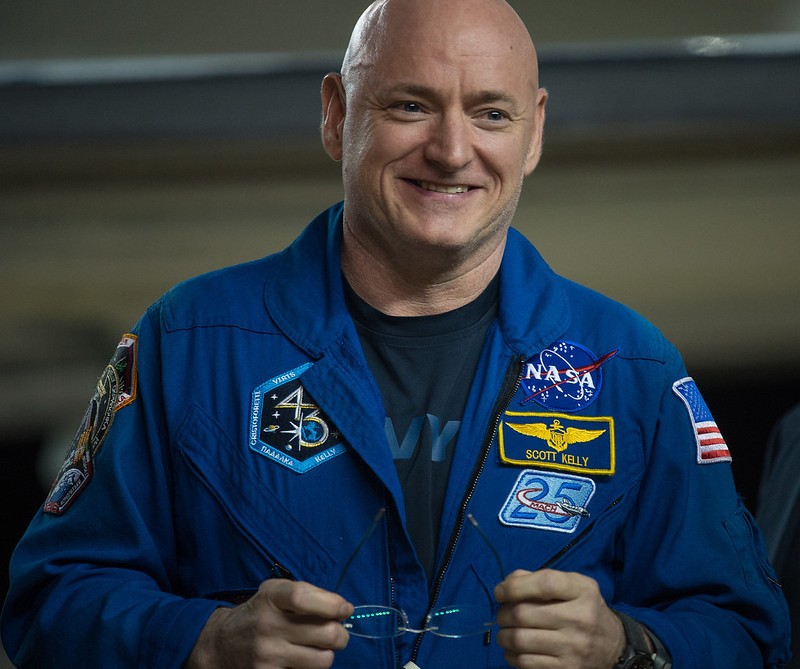
Millions of people all over the world are now stuck at home and this is quite a challenging time for almost everyone. This has also been proven true by Scott Kelly, a retired astronaut at the National Aeronautics and Space Administration who lived on the International Space Station for almost one year and he admitted, "It wasn't easy." He added, when he went to sleep, he was actually at work and when he woke up, he was still there-at work.
Kelly's experience is similar to what most people of the world are currently experiencing - staying at home to help prevent the spread of COVID-19 which has now infected 378,492 and killed 16,495 people globally.
Because of the figures that keep on rising every so often, world leaders have implemented strict quarantines in their respective countries. Even the employers have had their own contribution to mitigate the pandemic that they have allowed their employees to work from home.
Kelly, during his stay at the ISS for almost a year, now gives tips to make home quarantine still productive.
Some of the Things to Do while on Quarantine
Flying in space, according to Kelly, is perhaps, the only job one absolutely cannot give up. However, he said, he learned some things during his time in ISS and he generously shared some tips that people under home quarantine can use to also try to make their stay productive and ease boredom. Here are five of the many tips he shared:
Pace Yourself
When working and living in the same place for many days, Kelly shared, "work can have its own way to take everything if you allow it." He also added that as he lived in space, he deliberately paced himself as he knew he would be in it for quite a long time-just like almost everybody in the world is in, today. Even just at home, the retired astronaut advised taking some time for fun activities like watching movies complete with your favorite snacks and together with the whole family.
What's more important, Kelly said, is not to forget including in the schedule a "consistent bedtime." Scientists at NASA closely study the sleep of astronauts in space and they have discovered that the quality of sleep is linked to mood, interpersonal relations, and sleep.
Get a Hobby
Confinement, be it at home or in a small space should give you an outlet that is not work-related. You can grab a good book to read. The absorption and peace you can get from a physical book are undeniably priceless compared to the pings and notifications you get or tempt you to turn on your phone or tablet.
Make a Journal Your Constant Companion
At NASA, scientists have been thoroughly studying the impacts of isolation on humans for many years already and one of the surprising findings they've had is the importance of keeping a journal. Kelly also shared, throughout his mission for one year, it took the time for him to write about his everyday experiences. He also added, if one finds himself simply chronicling the events he engages in every day, he tries describing what he is experience instead, using the five senses. Or, simply, he advises everyone to "write about memories."
Maintain a Connection to People
Kelly, despite all his responsibilities to serve as a space station's commander, he never missed the chance of holding a videoconference with both his friends and families. In addition, scientists have discovered that isolation can be damaging not just to one's mental health, but to his physical health, too. Thanks to technology that makes it easier than ever so everyone can keep in touch.
Listen to, and Follow the Experts
In a challenging time like what the world is experiencing now, people should seek knowledge out the experts' knowledge and listen to what they say, advised the Kelly. Specifically, he said, everyone should ensure seeking out help from reputable sources of information such as the Johns Hopkins Coronavirus Resource Center and the World Health Organization (WHO).
Do Frequent Hand-Washing
Medical experts say, hand-washing is the most essential piece of advice one can get to stay protected from the dangers of COVID-10. Elizabeth Scot, Ph.D. and co-director at the Center for Hygiene and Health in Home and Community at the Simmons University said, one cannot necessarily control everything he touches. He cannot control either, who else touches it. Therefore, hand-washing with soap and water is an undeniably powerful weapon to fight germs regardless of who touches a surface.
© 2026 ScienceTimes.com All rights reserved. Do not reproduce without permission. The window to the world of Science Times.












